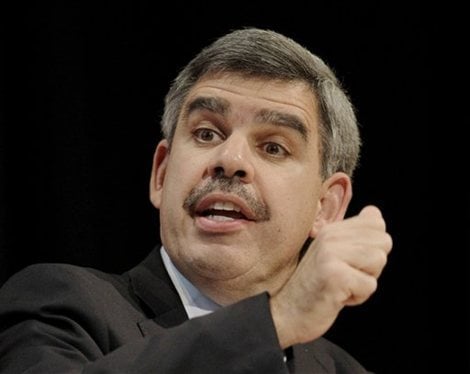“Peter Krauth writes: You may not have even noticed, but the first shots have already been fired in the next World War.
Only this time there are no tanks, fighter jets, nuclear subs, or missiles. And it’s not the North against South, or even East against West.
It’s war by other means and it pits fiat currency against fiat currency in a multi-trillion dollar knock-down drag out between the world’s central bankers.
At stake is nothing less than the value of your life savings.
Its goal is to cheapen worldwide currencies-which could make every dollar you own worth even less.
Thanks to horrible fiscal mismanagement, virtually every nation in the world now wants its own currency to become cheaper against those of other nations.
Welcome to the currency wars.
Think of it as a race to the bottom. But where it stops nobody knows.
The Lies Behind the Currency War
James Rickards, senior managing director of Tangent Capital Partners, and author of Currency Wars: The Making of the Next Global Crisis, thinks this battle is about an effort to get economies going by importing inflation rather than attempting to boost exports.
But I believe it’s about both reflating economies and stimulating exports. After all, national leaders are becoming increasingly desperate.
And though they’d like us to think otherwise, the currency war is here, and it’s escalating.
In fact, G-7 finance ministers and central bank governors recently released a statement to try and downplay the intensifying currency war noting that, “…we will not target exchange rates.”
Yet true-to-form, these high profile leaders are doing the exact opposite of what they’re saying.
In the wake of the financial crisis, the world had seen unprecedented yet (until now) coordinated financial stimulus. But today central banks are so addicted to the temporary “fix” from printing money, they have little concern for its effects on other nations.
Now barely a day goes by without a currency war-related headline. In fact, here are two I came across last week: “Global Monetary System Headed for Collapse” and “The Fed’s Global Unintended Consequence.”
There are plenty of others and you can expect quite a few more as this situation continues its downward spiral.
Upping the Ante
Of course, the U.S. has been labeling China as a currency manipulator for several years now. They claim the Yuan is kept artificially low so that Chinese imports remain cheap.
Talk about the pot calling the kettle black…
Over the last four years, America doubled the entire debt accumulated since the nation’s founding, going from $8 trillion to $16 trillion in the hole. What’s more, The Federal Reserve’s balance sheet recently set a notorious record, ringing in at over $3 trillion for the first time ever.
Then the Swiss, hurting from the effects of a strong Franc (CHF), decided that their currency was getting too strong and set a floor under it so the EUR/CHF rate couldn’t drop below 1.20.
French President Hollande also recently told members of the European parliament that EU leaders “need to think about our currency, the euro. We must have an exchange rate policy otherwise it will have rates that do not reflect the strength of its economy.”
But the most aggressive player in the currency war, at least so far, is Japan.
For a host of reasons, including zombie banks and horrible demographics, Japan’s economy has stagnated and deflated for an entire generation. Its flagship Nikkei index peaked near 40,000 in 1989, yet today stands at 11,300.
With two straight quarters of contraction, Japan is “officially” back in recession…..”
Full article
Comments »


